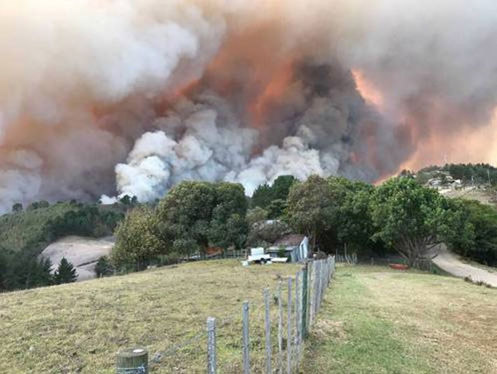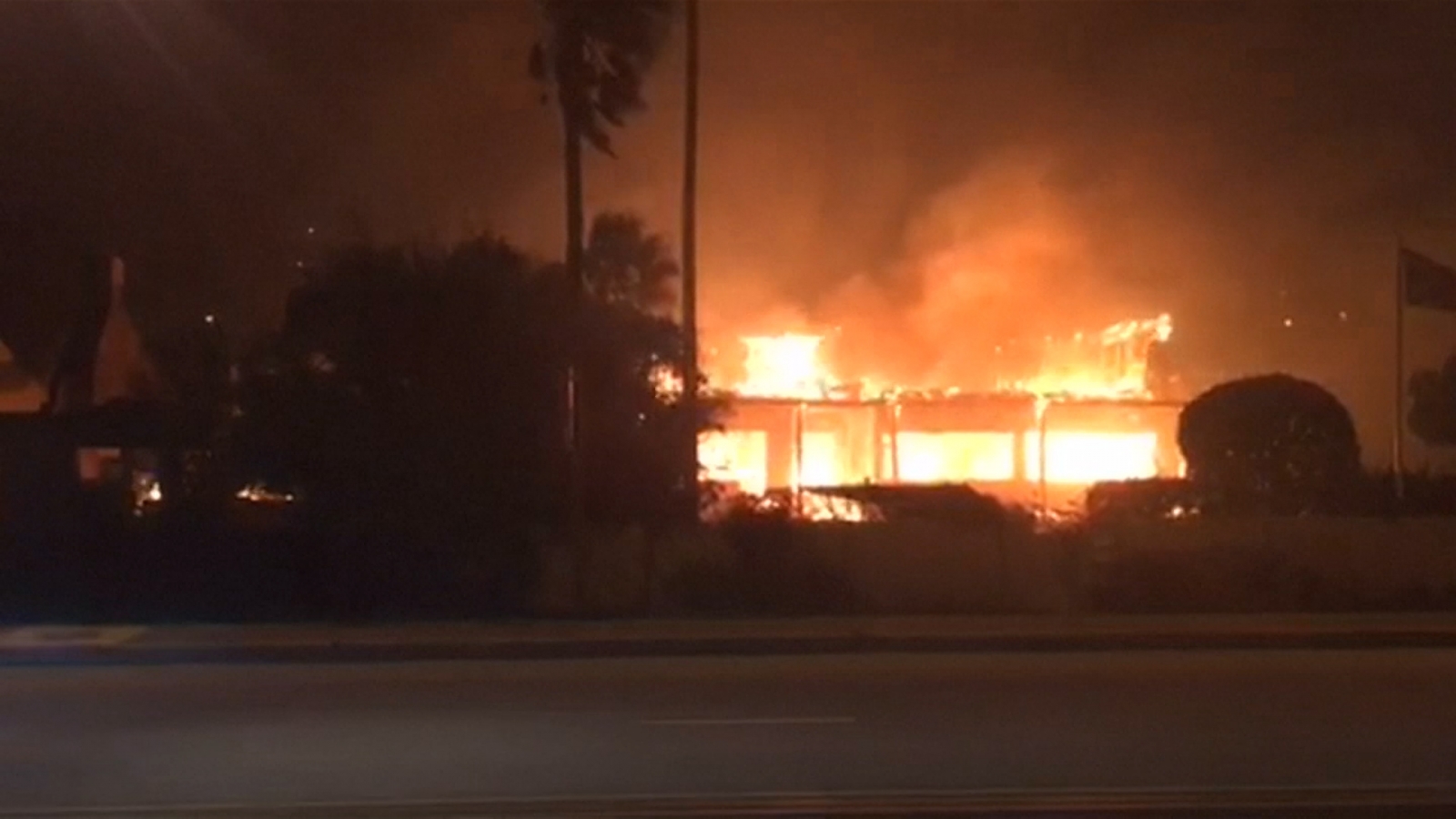South Africa struck by storm and wildfire forcing thousands to evacuate homes, schools and hospitals
Video and images of worst storm and fire in decades that has killed several and displced thousands.
Nine people have died at the time of reporting in South African city Cape Town as a huge storm crashed into the Cape Peninsula and the surrounding area. Eastwards, the nearby coastal town of Knysna is besieged by a massive wildfire being driven by the storm winds, a disaster which has so far claimed four lives.
On Wednesday (7 June) a powerful storm buffeted the coastline around Cape Town, unleashing heavy rain and gale force winds that spread fires caused by lightning strikes and forced thousands to evacuate their homes.
The powerful storm comes after a period of severe drought in Cape Town and surrounding areas. The Western Cape province declared a drought disaster three weeks as the region suffered from its worst water drought in 113 years.
But the rain brought little relief.
As 12m waves crashed down on the coastline, triggering flash floods and causing travel chaos, the strong winds fanned fast-moving fires, destroying dozens of homes and damaging hundreds more. Violent winds tore the roofs of 72 houses in the West Couple area and caused 45 to collapse.
22 schools were badly damaged, with several having their roofs blown off. Hundreds of people have been displaced and will be spending tonight in a community hall or shelter.
In Knysna, a popular tourist destination on the Garden Route, South African officials said up to 10,000 of the 77,000 residents were forced to flee overnight as fires ripped through the town.
The Knysna Provincial Hospital was among the buildings in flames on Wednesday night, exacerbating the emergency situation. Patients were evacuated and are being cared for at nearby Loerie Park sports grounds.








Knysna's fire chief, Clinton Manuel, said his teams were struggling to contain the flames. "This wind is blowing very, very strong, causing the fire to spread extremely rapidly," he told the African News Agency.
The town's mayor, Eleanore Bouw-Spies, said the fires were the worst in the region in decades.
The worst is not over as "Heavy rain and flash flooding are expected (across) the western parts of the Western Cape..." until Friday morning, the weather service said.
Snow is also expected in the mountains which will plunge areas along the coast into freezing temperatures.
The army has been deployed to try and prevent looting in Knysna, according to News 24. One resident from Sea Point, a suburb of Cape Town, told the news outlet that his clothes and blankets were stolen while he was sheltering under a small awning.
On Tuesday (6 June), shortly before the storm struck, Cape Town's mayor Patricia de Lille said urged "Capetonians to remain calm and do all they can to keep safe." She also called on them to harvest as much rainwater as possible, in the hope that the storm would end the country's worst drought in over a century.
"Use suitable containers to capture rainwater' which is perfect for flushing toilets as an example. Flushing the toilet with rainwater could save nine litres or more per flush' depending on the type of toilet'" she said.
The storm forced President Jacob Zuma, who was in Cape Town, to cancel a speech at an international media conference in the Durban, a city on the Indian Ocean coastline, his office said.
Houses destroyed by the #KnysnaFire pic.twitter.com/UexYYlPSVf
— Angelique Shekleton (@Ang_Sheks) June 8, 2017
© Copyright IBTimes 2025. All rights reserved.




















